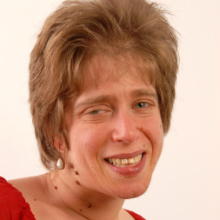Why disability advocacy matters under the NDIS
While there is a huge focus on services that provide choice and control, when you get asked big questions about life to shape your NDIS plan your first instinct isn’t likely to be “Advocacy fees thanks! Assistance with understanding my rights and ensuring they are protected!”
Unfortunately, when the NSW Government committed to handing over 100% of its disability funds to the Commonwealth National Disability Insurance Agency (NDIA) that also meant the money which funds advocacy services. Their contracts with the NSW Government expire in June 2016 and advocacy has become a Commonwealth responsibility.
At the same time, NSW has obligations under its recently released Disability Inclusion Plan to encourage the inclusion and participation of people with disability. Whether the Commonwealth will be happy to fund advocacy that helps NSW agencies meet their own legislated obligations is unclear.
At COAG, Australia’s disability Ministers recently agreed that that some supports related to individual advocacy would be funded by the NDIS on a ‘user-pays’ basis.
It is unacceptable that people with disability will be asked to choose between a daily shower and money for advocacy, ‘just in case’ something goes wrong.
The need for advocacy will become more acute as people with disability experience increased choice and control under the NDIS. Here’s three reasons why Commonwealth Governments should fund advocacy services outside the NDIS.
Firstly, when asked what your “reasonable and necessary” requirements are it will be almost impossible to predict how much individual advocacy you may need. If a tenant with intellectual disability needs to move between social housing properties, they may need assistance with negotiating with Housing NSW, signing a lease and changing address. This kind of support is often unexpected and unlikely to be ‘budgeted for’.
The big worry here is the people who need advocacy the most won’t be able to access it. This was backed up by the Productivity Commission in its 2011 Report into Disability Care and Support which recognised that relying on individual’s capacity to privately pay for advocacy is likely to render it unobtainable to the most vulnerable.
Secondly, systemic advocacy work is about collaborating to make systems work better for people with disability generally. Individuals can’t drive this kind of work, and shouldn’t have to pay for it.
It took a collaborative campaign from a range of advocacy organisations to make it mandatory for General Practitioners to install and use height adjustable examination tables that could meet the needs of all patients.
Advocacy organisations supported parents of children with disability to campaign for education policy and infrastructure changes that meant they could access the same quality education their peers could.
The Supported Living Fund, that provides housing support allowing people with disability to create living arrangements that suit them, is the result of advocacy services currently facing funding uncertainty.
Finally, advocacy organisations need to be funded outside of the NDIS because people with disability who are ineligible for individual support packages under the NDIS will also require advocacy services. There are approximately 4 230 000 people with disability in Australia and it’s estimated only 400 000 will receive individual packages under the NDIS. It is unfair to cut the remaining people off from advocacy services, without individual funding their need for advocacy may be greater.
Advocacy is a crucial component of making society an accessible place for people with disability to lead meaningful lives, but it only works if it is accessible to people who need it, when they need it.
We in the disability community need to demand both State and Commonwealth governments provide much needed certainty for advocacy funding in the post-NDIS world.
Ya’el Frisch is a Policy and Research Officer at the Council of Social Services NSW (NCOSS), who lives with disability. NCOSS provides Secretariat support to the NSW Disability Network Forum, which comprises non-government, non-provider peak representative, advocacy and information groups whose primary aim is to promote the interests of people with disability.


Join the conversation